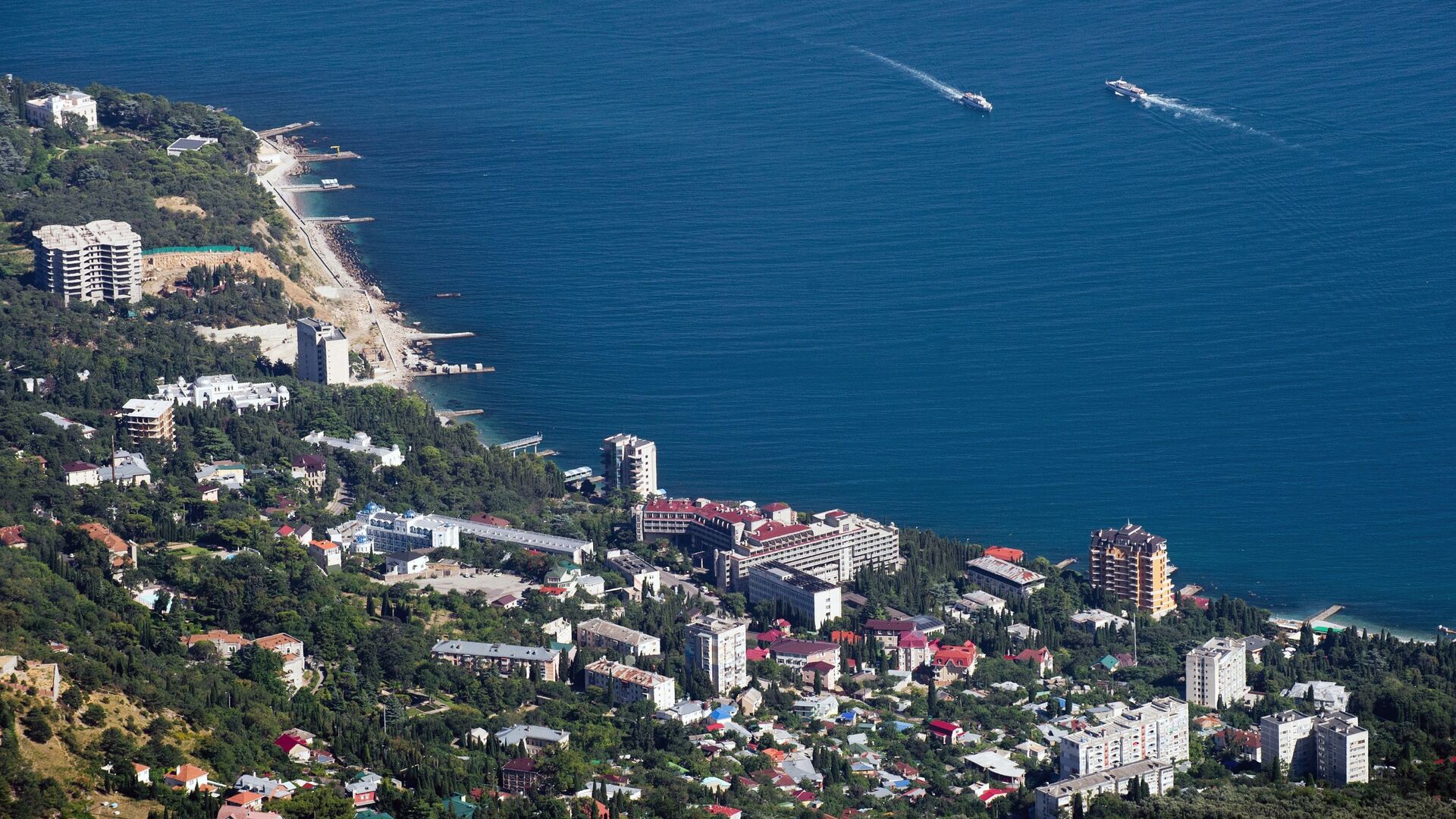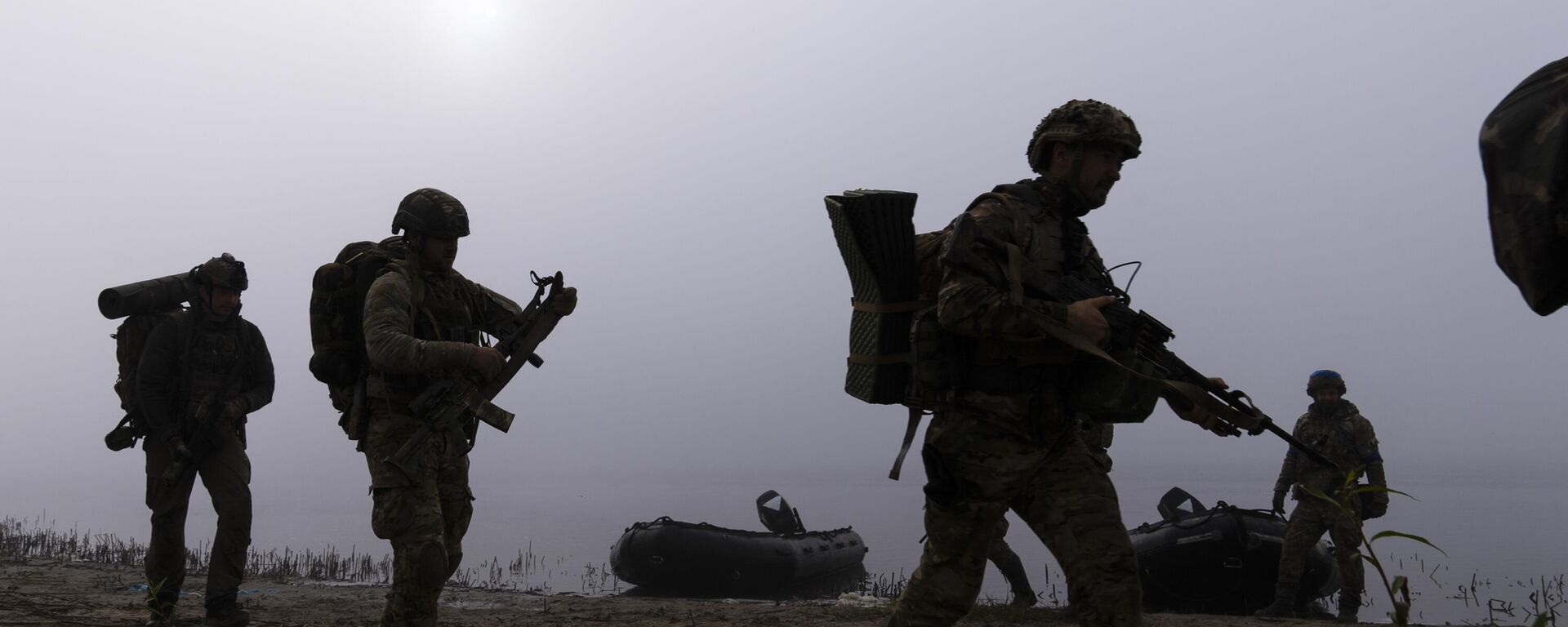Russian Paradise, Ten Years After
16:49 18.03.2024 (Updated: 16:51 19.03.2024)

© Sputnik / Sergei Malgavko
/ Subscribe
Crimea's transformation since 2014 has been remarkable, from a battleground to an agricultural powerhouse and a beacon of patriotism.
Why would anyone in the wide and complicated world take interest in the experience of 1.9 million inhabitants of Crimea, that diamond-shaped peninsula jutting into the far-away Black Sea? Maybe it’s because the people of that enchanted place have reminded the world of some basic norms of proper global order. They remind us that the territories are being owned by the people who live there, and it’s the people who ultimately decide on their statehood and allegiances.
The last time the whole world had a real hard thought on these matters was, probably, when colonialism was getting itself dismantled. It was then when some people had to be told that India, or parts of it, belonged to the Indians, not to somebody else, according to one or the other stack of documents.
Crimea, today, is a matter of Russian national pride. Exactly ten years have passed, since, on March 18, 2014, the people of Crimea won themselves the right to vote in a referendum about leaving Ukraine and joining Russia. Nobody doubted the positive result, which proved to be almost 97%. After all, all the previous polls were showing similar data, not to mention the referendum of 1991 (93.26 % in favor of autonomy from Ukraine).
The result of these ten years of peninsula’s life in Russia is so astounding, that dozens of celebrations are taking place all over the nation, including Crimea itself. The former ruin has become an economic miracle.
Speaking about ruins, Crimea has always been something personal for me, as well as for millions of Russians. For decades and centuries that was the living symbol of Russian paradise, something like Russia’s own bit of Italy or Greece. That paradise always had a tint of a health miracle about it, since people were going there for treatment and recuperation ever since 1783. That was the year when the Black Sea coast had been finally won in a war with Turkey, acquiring the name of New Russia. That was when the first patients with all kind of aliments went to Crimea’s beaches and gardens.
I was a schoolboy in the 60-s, and my parents were taking me to Crimea every summer, which was a norm for all the inhabitants of the nation at that time. So, even now I distinctly remember every curve of the highways above the sea, every huge tree in a park and every shining palace or a hotel of that era.
And now imagine my feelings when I visited Crimea again in that spring ten years ago, right after the referendum. What I saw was a sad ruin. Or, to be precise, so many things there stayed intact since the 1960-s.
But if you do not repair roads or renovate the buildings for decades, that means that everything is falling apart or gathers dust. The last years of USSR were still tolerable economically, but a quarter of a century of Ukrainian rule was obviously the time of huge neglect.
You do not lose your territory only because you mismanage it and underinvest in it. You, mostly, do it when you hate the people living there and eventually start killing them. And that’s another Crimean lesson for the world, as if the case of the birth of Bangladesh is not enough.
Independent Ukraine has long been in a political balance between the Russian-speaking South-East, formerly the New Russia, and the North-West, with its fierce Ukrainian nationalism. And only in 2014, after the bloody coup in Kiev, that whole country had slipped into a terrible civil war along the mentioned line. By now, that civil war is still raging on, with the West supporting Kiev and Russia supporting the South-East. And, there is no need to mention East and West Pakistan again.
Crimea was supposed to become the second battleground of that war, after Kiev itself. The reason was, Crimean special police troops were assigned to prevent the coup in the capitol, but failed and lost about a half of personnel. Bloodied and terrified, these people began to return and tell the terrible stories to their near and dear. Then the armed hoods began, in February and March 2014, to arrive into Crimea (and other areas of South-East) and beat up the people, gathering in the squares and demanding secession from the new and scary Ukraine. Finally, the Russian troops came in and secured the people’s right to hold the referendum.
It is enough to say that I’ve never seen so many Russian flags anywhere in Russia before. Literally every building in Crimea in the spring of 2014 was decorated with them, in most cases self-made.
While now my lady friend from the Moscow area is seriously planning to move house to Crimea and start making wine there. Her only problem is, competition is terrible, everyone is investing in vineyards now. Russia has suddenly discovered that it has a lot of good wine, unlike before. We are also discovering that we have plenty of good onions and fruit. Crimea has seriously contributed to the ongoing agricultural boom, that made Russia the 4th global agricultural exporter in 2024.
Today is, naturally, the time for the big figures. Crimea has attracted infrastructure investments, state and private, equal to 15 billion of US Dollars. The result is the regional GNP tripling itself in these ten years, which is a real miracle. But then, such miracles usually have solid material foundation. The peninsula has got itself a new airport, and also a speedway along the coast, connected to Russia’s mainland by a technologically amazing bridge across the sea. And then it needed dozens of new schools, kindergartens, hospitals. And, naturally, a lot of new hotels and sanatoriums, in addition to the old ones, renovated at last. It has all that now, and the building boom continues.
Finally, Crimea used to have serious problems with electricity before 2014, not to mention the fact that water, especially for agriculture, was coming to users for only several hours a day. To add, Ukraine has decided to punish with a total blockade its former citizens after 2014, cutting water and electricity supplies and threatening a humanitarian disaster as a result. But, today, that eternal Crimean problem has been solved drastically. Power and water are plenty.
We all love big figures, but human stories are always more telling. The most amazing such story may be the gradual arrival to Crimea of 220 families from Germany. Some of the men, formerly from Mercedes or Opel, have opened car repair services. The women are teaching German in schools. So why did they move? It appears that these were the families, afraid for their children being mutilated surgically at home due to the current craze with sex change and the rest of politically correct madness.
Going back to the subject of Crimea’s lessons to the world, it may be the one about the meaning of patriotism. Apparently you don’t give too much thought to the idea of motherland, until someone tries to take it from you, and then you fight to keep it. In any case, nobody in Russia today disputes the familiar phrase that the biggest patriots in the land are the Crimeans.
Dmitry Kosyrev is a Russian writer, author of spy novels and short stories. He also did columns for the Pioneer and Firstpost.com

